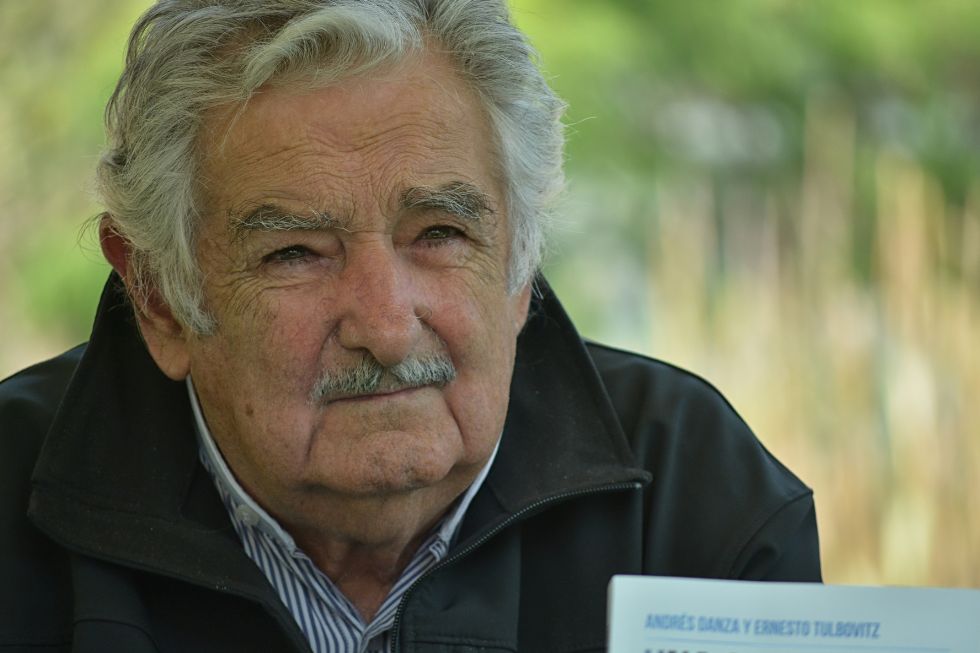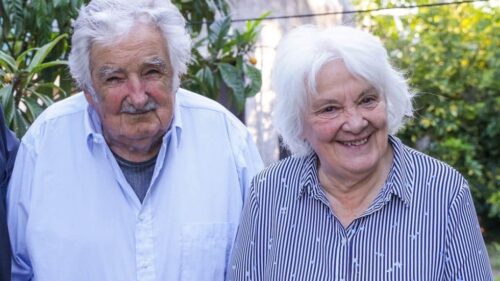A fashionable dinner party game in middle-class households in the UK is to name a living politician that everyone can admire. After nearly fifteen years of Tory rule in the aftermath of the Global Financial Crisis, COVID-19 and the insipidness of Labour Prime Minister Keir Starmer’s government during its first year in office, domestic examples are in seriously short supply. In fact, they are non-existent. Internationally, examples are difficult to spot as well. The wars in Ukraine, Gaza and Sudan, rising violence in Libya and Syria and the rise of the populist right across Europe and the US — all against the backdrop of a collapsing postwar international liberal economic order — have led to a dearth of candidates who might be called admirable.
My usual answer was José “El Pepe” Mujica. Alas, no more — he died on May 13 at age 89. There was much to admire in this son of a florist and smallholder.
First, his frugal authenticity. He lived his principles. As Uruguay’s president from 2010 to 2015, he rejected the presidential residence and remained on his farm in a three-room farmhouse, where he had lived most of his life. He refused the presidential limousine, continued to drive an old VW Beetle, lunched in everyday bars in Montevideo and gave away most of his salary.
This was refreshing in an era of MP expenses scandals, fishy mega-PPE contracts during COVID, dodgy crypto launches attached to presidents, lavish gifts such as private jets and lucrative post-office speaking circuits.
Second, his commitment to democracy. He viewed the trappings of high office as anathema to democracy, which he defined above all as egalitarian. As a republican (note the small “r”) from the UK, I find this accurate. Though he had a revolutionary past, he was a pragmatist. Politically, this meant a commitment to liberal democracy. In policy terms, it meant charting a middle path between a growth-only agenda that concentrates capital and a “distribute quickly” agenda that stifles investment and growth in the medium and long term. During his administration, Uruguay saw reduced poverty and indigence and increased employment. He strengthened economic and social rights and expanded civil and political rights. He legalized cannabis, abortion and gay marriage. When Uruguayan courts declared some of his other reforms unlawful, he accepted their rulings without criticism.
This stands in contrast to many of today’s politicians, who aim to destroy institutions, rewrite rules, or even re-found their country. Consider UK Prime Minister Boris Johnson’s proroguing of Parliament, US President Donald Trump’s contempt for the Constitution, or Hungarian Prime Minister Viktor Orban’s “illiberal democracy.”
Third, Mujica had a modest yet inspiring vision. He saw politics as a fight — no doubt connected to his past as a Tupamaros guerrilla. After spending fourteen years in prison, ten of them in solitary confinement (two at the bottom of a well), he shifted that fight toward democracy. Its greatest advantage, he believed, was that “it doesn’t believe itself to be finished or perfect.” At the end of his term he said, “… if I look at the current picture of my society, I cannot be happy, there is still more to be done.” He mistrusted extreme positions. He saw them as offering overly simplistic answers to difficult problems. Lasting egalitarian change required changing cultural attitudes. This was slow and difficult. But he believed that the democratic process — open, transparent, respectful, wary of extremes — was essential to creating the cultural values needed to build a more egalitarian society.
Again, compare this with the visions of other politicians today. From “American Carnage” to the so-called “migrant invasion” of the UK, apocalyptic language justifies bypassing institutions in favor of majoritarian rule. Others have no vision at all; after a year in office, the shape and form of Starmerism remain unclear.
Fourth, his foreign relations. On foreign investment, he welcomed capital into Uruguay. This was politically difficult in Latin America, given the region’s colonial past with Spain and semi-colonial relationship with the US. But Mujica saw the need to change Uruguayans’ cultural attitudes toward historical grievances about foreign capital. Doing so would support the long-term growth needed to fund redistribution and deliver real egalitarian gains. In foreign policy he was discreet, incremental and conciliatory. He even served as an unofficial intermediary between Cuban President Raul Castro and US President Barack Obama during their rapprochement.
A modest, self-deprecating democrat who lived the values he espoused. Perhaps there was nothing remarkable about Mujica — I’m sure he would agree. But in the world of 2025, this unassuming parliamentarian, who welcomed disagreement as essential to progress, was someone truly worthy of admiration. Perhaps now all those who can truly understand — and practice — Hegel have actually died.
The views expressed in this article are the author’s own and do not necessarily reflect Fair Observer’s editorial policy.
Support Fair Observer
We rely on your support for our independence, diversity and quality.
For more than 10 years, Fair Observer has been free, fair and independent. No billionaire owns us, no advertisers control us. We are a reader-supported nonprofit. Unlike many other publications, we keep our content free for readers regardless of where they live or whether they can afford to pay. We have no paywalls and no ads.
In the post-truth era of fake news, echo chambers and filter bubbles, we publish a plurality of perspectives from around the world. Anyone can publish with us, but everyone goes through a rigorous editorial process. So, you get fact-checked, well-reasoned content instead of noise.
We publish 3,000+ voices from 90+ countries. We also conduct education and training programs
on subjects ranging from digital media and journalism to writing and critical thinking. This
doesn’t come cheap. Servers, editors, trainers and web developers cost
money.
Please consider supporting us on a regular basis as a recurring donor or a
sustaining member.
Will you support FO’s journalism?
We rely on your support for our independence, diversity and quality.










Comment